How do libraries work with e-books?
While some libraries collect specific types of eBooks on a more modest basis, Iowa’s 25 public libraries have upgraded their collections to increase both access and the inclusion of more eBooks. The new program has been in the works for years but is only now hitting the finish line. The Iowa Public Library Commission allocated $300,000 of the $4.2 million from its budget to be used on a new digital collection for all Iowa libraries. The funding includes funds for digitization and acquisition.
The resulting new collection will have most of the top selling eBooks available from the major ePublishers – including Amazon and Google. Library staff will have total control over the collection and will have the final say in which books they choose to include.
According to Iowa Library Commission Executive Director Eric Norris, Iowa’s eBooks will have the following new features:
Customizable look and display
Slick navigation and access to related reading materials
Full range of author and publisher notes
E-READ features for authors to write notes about their work
A dynamic search interface
Inventory management for customers wanting to transfer their digital collection to a library card
e-collection capabilities for materials coming into a library
A complete look and explore of thousands of eBooks with updated data
Research tools for researchers
Periodical listings of top reading materials
Each individual library will have its own list of eBooks available to check out. Within these eBooks, customers can choose to get up to three different views and get detailed information about the book, including sample pages, publication dates, author information, page numbers, and even text listings in multiple languages.
Ebooks, once purchased, can be read on a variety of devices, including computers, smartphones, tablets, and desktop computers. The library still has to establish pricing for eBooks, but library staff say eBooks should be less expensive than standard paper books.
This comprehensive collection will give Iowa residents access to more than 4 million eBooks available from the major ePublishers.
Library staff will present the new collection to the public at upcoming meetings.
I’ve been working on the blog for a few weeks now, and it’s gone really well. I’m glad to have been able to give some fresh content to readers for a change. It’s been a little over two years since I last posted something here, so it’s been a while since I’ve blogged. Even so, you’ll probably notice that there are some gaps, and there will probably be more gaps to fill in over time. It is nice to be able to just write and write some more without having to worry too much about the aesthetic or the latest trend.
Looking ahead, I’d like to think that I might start to expand the blog to some kind of news and opinion site, but for now it’s just going to be the occasional collection of things I’m thinking about, reading, or doing. I’m still looking to expand my book research, and I’ll probably be working on that for most of this month. In addition, my reading to learn more about the copyright system in general is still going strong and is a big focus for me. Plus I’m working on organizing things for an upcoming presentation about ebooks and library finances.
Another aspect of the future is that I’ve started working on the history of the Iowa Public Library system. I’m just learning about the ways in which people advocated for libraries in Iowa from the 1930s to the 1960s, and I’m using this as a way to learn more about the public library movements across the country. It’s been a great way to learn more about early libraries and about how libraries have evolved over the decades.
I haven’t quite figured out how I’m going to make the history part work yet, but I think I’ll eventually write about the evolution of library funding, the establishment of public libraries, the acquisition of materials, and other elements that make up a library. I’ve spent a few hours on this today, and I still have some thoughts and ideas.
I’ve started adding some pages to the blog that are specific to eBooks and libraries, and I’ll start adding eBooks that I’m reading on a daily basis. You can see the links to my bookshelves in the sidebar on the blog’s main page. The author and publisher notes are coming soon, so you’ll see a few updates to those lists over the next month or so.
I’m also going to start posting more of the library blog entries that I previously wrote at this blog. As I’ve been doing the library work over the past few weeks, I’ve also been learning more about the history of libraries and the basic structure of a library. This experience has been very interesting, and I’ve learned a lot from studying early library journals. I’ve started writing the library history blog more, and I’ll be posting short entries about library research and basic historical facts.
In addition to working on the library history blog, I’m working on a library blog about eBooks. I’ll probably write about new eBooks that I’m reading, or library services, or new technologies.
It’s a little early to start discussing an eBooks blog. I’ve read some early blog entries, and I’m getting a little tired of writing my thoughts, opinions, and complaints. I’m not sure if I’ll end up making it a daily blog, a weekly blog, or maybe even a monthly blog. It’s just that I think it’s a little early for me to get into writing my own thoughts, opinions, and complaints about eBooks. Besides, it’s still just under a year since I’ve written my first blog entry, so it would be a little early to start a new blog now.
Maybe I’ll come up with some ideas about this over the next month or two. It’s still early to be thinking about such a project.
One thing that has been on my mind lately is the arrival of over 4 million eBooks to the Library of Congress, and I’m hoping to write about some of these in a few weeks or months. It’s great that people can bring eBooks into libraries and use them in ways that they can’t usually use other types of materials in libraries. And I also want to write about how people are using these books in libraries, and I want to learn more about this as well.
I’ve mentioned before that the Library of Congress is one of the largest collections in the world. It’s also one of the most important collections for scholars and readers that I know of. Plus it’s been around for hundreds of years. It’s important for readers, scholars, and libraries to use this collection of books. This library collection is constantly expanding, and it’s now over 4 million eBooks. But I also want to find out more about how eBooks are being used in libraries, and I want to share with you some of the exciting things that I’ve learned about how people are using eBooks in libraries.
One interesting aspect of this work is that I’ve been working on the library of Congress’s eBooks website for over a year, and I still haven’t been able to add all of the eBooks from the eBooks program in the Library of Congress’s Library of Congress Online Catalog. I’m also still working on using the catalog as a library. I hope to write about this in more detail in the next few weeks.
I still have some things to figure out about how I’m going to use this website. But I have finally completed reading and compiling the library’s database for eBooks. I also completed converting all of the library of Congress eBooks to the format of EPUB. I’ve been reading through the library of Congress catalog to find out if there are any other eBooks that I need to read to make sure that I have the eBooks that I need.
I’ve written before about EPUB being used for eBooks in libraries. EPUB was developed as an extension of the ECMA standard for “ePub,” which is the format used by eBooks in most ebook readers. EPUB is very similar to EPUB, but there are some differences between the two formats.
I’m also hoping to write about the library’s eBooks website over the next few weeks. The library’s eBooks website is a great resource for libraries, scholars, and readers. But it’s still under construction, and it will be a little over a year until it is completely finished. I’m hoping that I’ll be able to find out more about this website in the next few months, and I’m planning to make a few blog entries on this website about eBooks that you can read over your eBooks reader.
I’m also planning to do a few blog entries about how people are reading eBooks over eBooks readers, and I’m hoping to write some entries about EPUB’s Library of Congress eBooks program and how people are using this program. But I don’t know how long this will take for me to work on this. I might do this in a month or two. I’ll write my blog entries when I feel like they are appropriate to write them.
s a little early to start talking about an eBooks blog.
On this site, I’ll be writing about how people are reading eBooks over the Library of Congress’s eBooks, and I’ll be writing about the Library of Congress’s eBooks library.
So that’s what I’m working on now. And I’ll be writing about eBooks in libraries and eBooks readers.
I’m hoping to write about the library of Congress’s eBooks library when it’s finished, and I’m hoping that people will be able to use this library of eBooks in libraries as soon as it’s finished.
This site is different from a regular library of eBooks. This library has an eBooks catalog, and eBooks are part of the catalog. There are also over 3,500 eBooks, and I’ll be sharing with you some of the eBooks that I have read in libraries.
I’ve also been thinking about different ways that people are using eBooks in libraries. The library of Congress has been thinking about this for a long time. It’s been working on the Library of Congress eBooks website for over a year. In the next few weeks, I’ll be talking about different ways that people are reading eBooks in libraries.
But before I write these blog entries, I’d like to read one of the library of Congress’s eBooks.
. . .
For this first entry in this blog, I decided to read one of the library of Congress’s eBooks and see if I could share it with you.
This is a book called Family Trees of American Writers: Proceedings of the Twenty-Fifth Annual Conference of the American Society of Genealogists. This book was published by the library of congress’s library of manuscripts and archival materials. This is also the database of eBooks that I have recently converted to EPUB format.
You can find Family Trees of American Writers in the library of manuscripts and archival materials. This is also where you can find a copy of Family Trees of American Writers.
But I’d like to read this book and see how it works as a PDF file in a reader like Kindle.
And that’s what I’m going to do right now. I hope to write a little more about this as I read this book.
I also want to write about the Library of Congress’s eBooks library before I write about this.
Okay. I’ve started to read this book. It’s a short book about families that have an ancestor named George Washington. It’s one of the families that the library of congress has in their collection.
You can find Family Trees of American Writers in the library of manuscripts and archival materials. This is also where you can find a copy of Family Trees of American Writers.
So I’m going to read this book in a reader like Kindle.
But I want to share one of the interesting things that I’ve read about these families.
Back in the 1800s, some families that had an ancestor named George Washington would start thinking about family trees, and they would try to figure out where George Washington’s ancestors came from.
The family with George Washington in the family tree would start asking their relatives about different places in the world. They might talk to their neighbors, friends, and other people who had ancestors that came from the same place that George Washington’s ancestors came from.
They would ask about the names of cities that George Washington’s ancestors came from. And they would ask about the names of rivers that George Washington’s ancestors came from.
And then they would ask about the names of roads that George Washington’s ancestors came from.
They would ask about different relatives that their relatives in different towns had named, or had said they were related to. And then they would ask about other relatives who didn’t come from their town.
This family of George Washington’s descendants would come up with lots of different answers, because they thought that they had relatives all over the world. They would find relatives in cities in Europe, in Australia, in North and South America.
They would find relatives in places that they had never heard of before, and they would find relatives that had never been recorded in any records.

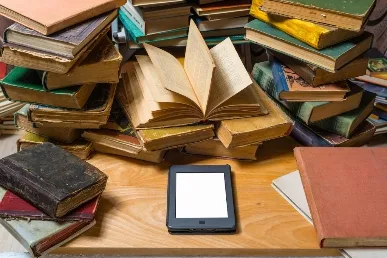









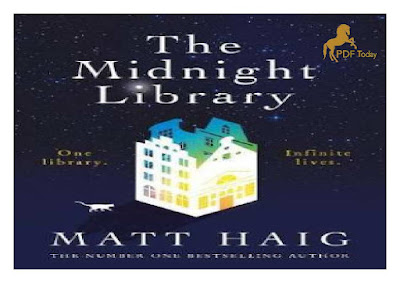
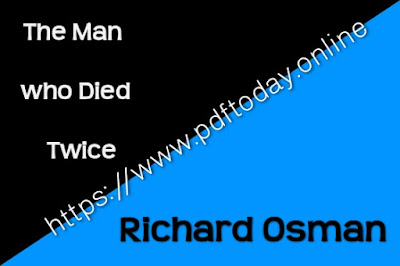

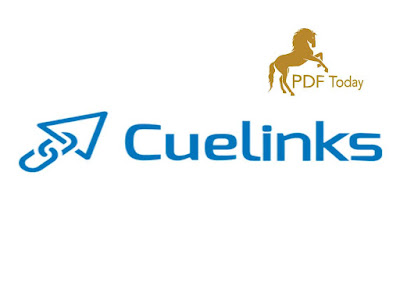

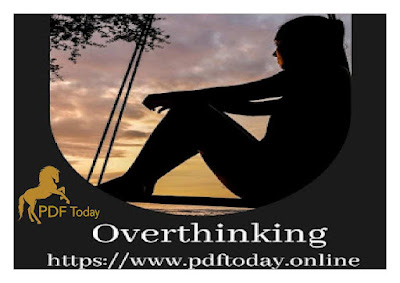

0 Comments